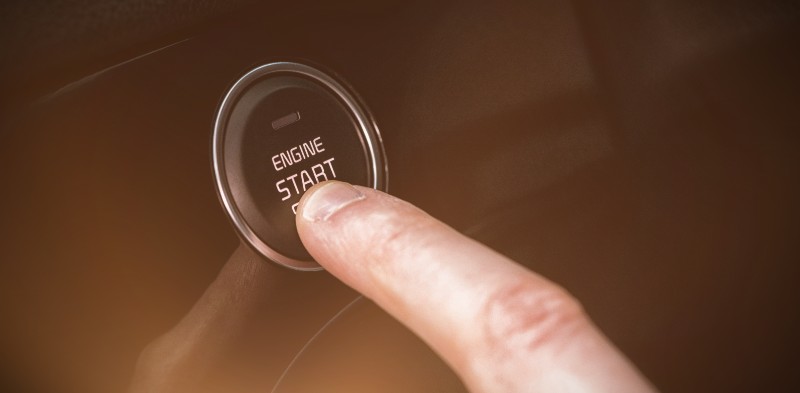Imagine this: you get into your car, ready to start your day. You turn the key, but the engine doesn’t start. However, the radio and lights are working just fine. This situation can be confusing and frustrating.
There are several reasons why your car might not start even though the radio and lights are working. Let’s discuss the possible causes and solutions.
Understanding the Problem
When your car won’t start but the radio and lights work, it means that some parts of your car’s electrical system are functioning. The battery has enough power to run the radio and lights, but not enough to start the engine. As you might know, starting the engine requires a lot more power than running the radio or lights.
Here are 5 common causes.
Battery Issues
Even if your lights and radio work, the battery might still be the problem. Starting the engine requires a lot of power, and a weak or depleted battery might not have enough juice to do the job.
Signs of a Weak Battery
- Dim lights: If the lights are dimmer than usual, the battery might be weak. Dim lights indicate that the battery is not providing enough power.
- Slow crank: If the engine cranks slowly when you try to start the car, the battery might be low on power. A slow crank means the starter motor is not receiving enough power to turn the engine over.
Solutions
- Jump-start the car: Use jumper cables to jump-start the car. If it starts, the battery was likely the issue. Ensure you connect the jumper cables correctly to avoid any damage.
- Replace the battery: If the battery is old or damaged, it might need to be replaced. Regularly check the battery’s condition and replace it every 3-5 years or as needed.
Ignition Switch Problems
The ignition switch provides power to the starter motor, and if it is defective, the car will not start.
Signs of Ignition Switch Problems
- No dashboard lights: If turning the key doesn’t light up the dashboard, the ignition switch might be the problem. The dashboard lights should illuminate when the key is in the “on” position.
- No sound: If you hear nothing when you turn the key, the ignition switch might be faulty. A faulty ignition switch can prevent the starter motor from receiving power.
Solutions
- Check the ignition switch: Have a mechanic inspect the ignition switch and replace it if necessary. Ignition switch problems can be complex, so professional help is often needed.
Starter Motor Issues
The starter motor is responsible for turning the engine over. If it’s faulty, the engine won’t start.
Signs of Starter Motor Problems
- Clicking sound: If you hear a clicking sound when you turn the key, the starter motor might be the issue. The clicking sound indicates that the starter motor is trying to engage but failing.
- No sound: If there’s no sound at all, the starter motor might be completely dead. A dead starter motor will not engage the engine.
Solutions
- Tap the starter motor: Sometimes, tapping the starter motor with a tool can get it working temporarily. This is a temporary fix and should not be relied upon.
- Replace the starter motor: Replace the faulty starter motor.
Electrical Connection Issues
Loose or corroded electrical connections can prevent the car from starting.
Signs of Electrical Connection Issues
- Intermittent starting problems: If the car starts sometimes but not always, there might be a loose connection. Intermittent problems can be tricky to diagnose.
- Corrosion: Visible corrosion on battery terminals or other connections can cause problems. Corrosion can prevent the flow of electricity.
Solutions
- Clean the connections: Clean any corrosion from the battery terminals and other connections. Use a wire brush and a mixture of baking soda and water to clean the terminals.
- Tighten the connections: Make sure all electrical connections are tight and secure. Loose connections can cause intermittent starting problems.
Fuse Problems
A blown fuse can prevent the car from starting.
Signs of Fuse Problems
- No power to certain components: If some electrical components work but others don’t, a fuse might be blown. Check the fuse box for any blown fuses.
Solutions
- Check the fuses: Inspect the fuses and replace any that are blown. Refer to the car’s manual to locate the fuse box and identify the correct fuses.
Specific Scenarios
You Hear Nothing at All
If you turn the key and hear nothing, the problem might be with the battery, ignition switch, or starter motor.
Possible Causes
- Dead battery: The battery might be completely dead. A dead battery will not provide any power.
- Faulty ignition switch: The ignition switch might not be sending power to the starter motor. A faulty ignition switch can prevent the car from starting.
- Starter motor failure: The starter motor might be completely dead. A dead starter motor will not engage the engine.
Solutions
- Jump-start the car: Try jump-starting the car to see if the battery is the issue. If the car starts, the battery was likely the problem.
- Check the ignition switch: Have a mechanic inspect the ignition switch. Ignition switch problems can be complex and require professional help.
- Replace the starter motor.
You Hear a Clicking Sound
If you hear a clicking sound when you turn the key, the problem is likely with the battery or starter motor.
Possible Causes
- Weak battery: The battery might not have enough power to start the engine. A weak battery will not provide enough power to the starter motor.
- Faulty starter motor: The starter motor might be trying to engage but not working properly. A faulty starter motor will not turn the engine over.
Solutions
- Jump-start the car: Try jump-starting the car to see if the battery is the issue. If the car starts, the battery was likely the problem.
- Replace the starter motor.
The Engine Turns Over but Doesn’t Start
If the engine turns over but doesn’t start, the problem might be with the fuel system or spark plugs.
Possible Causes
- Fuel system issues: The fuel pump or fuel injectors might be faulty. A faulty fuel system will not deliver fuel to the engine.
- Spark plug problems: The spark plugs might be worn out or faulty. Worn-out spark plugs will not ignite the fuel mixture in the engine.
Solutions
- Check the fuel system: Have a mechanic inspect the fuel pump and fuel injectors. Fuel system problems can be complex and require professional help.
- Replace the spark plugs: If the spark plugs are worn out, replace them. Regularly check and replace spark plugs as part of routine maintenance.
Preventive Measures
Taking care of your car’s electrical system can help prevent starting problems.
Regular Maintenance
Regular maintenance can help prevent many of the issues that cause starting problems.
Tips
- Check the battery: Regularly check the battery for signs of wear and replace it if necessary. A healthy battery is crucial for starting the car.
- Inspect the electrical connections: Make sure all electrical connections are clean and tight. Loose or corroded connections can cause starting problems.
- Replace worn-out parts: Replace worn-out parts like spark plugs and ignition switches before they cause problems. Regular maintenance can prevent many starting issues.
Keep an Emergency Kit
Having an emergency kit in your car can help you deal with starting problems.
Items to Include
- Jumper cables: Jumper cables can help you jump-start the car if the battery is the issue. Always keep a set of jumper cables in your car.
- Basic tools: Basic tools like a wrench and screwdriver can help you tighten loose connections. A small toolkit can be very useful in emergencies.
- Spare fuses: Having spare fuses can help you replace a blown fuse quickly. Keep a selection of fuses in your car.
When to Call a Professional
Sometimes, it’s best to call a professional mechanic to diagnose and fix the problem.
Persistent Problems
If the car continues to have starting problems despite your efforts, it’s time to call a mechanic. Persistent problems can indicate more serious issues.
Complex Issues
If the problem seems complex or you’re not comfortable working on the car yourself, call a mechanic. Complex electrical issues require professional expertise.





